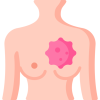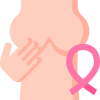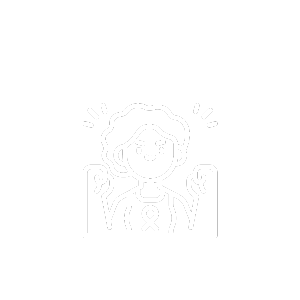


Breast cancer and women:
Being a modern woman is challenging. The work-family-life balance sometimes permits little space for me-time, let alone the ‘boring and time-consuming’ medical check-up.
A common scenario will be:
“I am aware of my body and have no lumps in my breasts or any other signs of breast cancer I have 'googled' in the net.”
“I am a healthy woman. I live a balanced life, eat healthy food and exercise regularly. Cancer does not run in my family.”

Unfortunately, early breast cancer typically has no symptoms. This is why we need to have regular screening. Breast cancer is a major cancer among women in Malaysia. Currently, there is no vaccine, diet, or lifestyle modification to prevent breast cancer. Women without a family history can still have breast cancer. The risk of having breast cancer in Malaysia is 1 in 20.

In high-income countries, 9 out of 10 breast cancer patients have 10 years of survival. The national average in Malaysia for 10 years survival is 5 out of 10. The reason for this poor outcome lies in late detection and poor or delayed access to treatment, things that are potentially preventable. Screening is of utmost importance for breast cancer because screening helps detect the tumour when it is small and most easily treated.

A mammogram screening is the gold standard for breast cancer screening for women above 40 years old. It detects microcalcifications, which are tiny calcium deposits that can often be the first indication of breast cancer.
However, in women with dense breasts, the mammographic study needs to be supplemented by ultrasound. Combining both mammogram and ultrasound screening reduce the risk of missing small cancer. Ultrasound is also a potential screening tool for asymptomatic and low-risk younger women (less than 40 years old).






The take-home message is, that we as a woman need to put our health concerns at a higher priority than our sense of anxiety towards mammogram screening. Mammogram screening significantly increase our chance of defeating breast cancer.
Early detection of breast cancer is worth more than the possible short moments of discomfort some may experience during a mammogram screening. After all, we are women, born to be strong and brave.
Life Care Diagnostic Medical Centre Sdn. Bhd. 200401034597 (673106-V)
Bangsar South
WhatsApp: 0122343610
1st Floor, Wisma Lifecare,
No. 5, Jalan Kerinchi, Bangsar South,
59200 Kuala Lumpur
Cheras South
WhatsApp: 01127213620
19A-2 & 19B-2, Block E, Kompleks Komersil Akasa,
Jalan Akasa, Akasa Cheras Selatan,
43300 Seri Kembangan, Selangor
Operating Hour:
Monday – Friday: 8.00am – 5.00pm
Saturday: 8.00am – 1.00pm
Sunday & Public Holidays: Closed